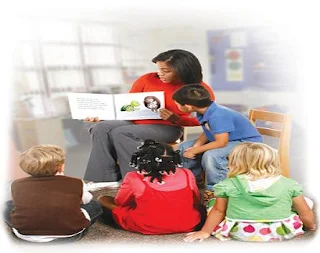The concept of educational evaluation is not a discovery of the present age. Evaluation is a reality of our daily life. Every individual evaluates him/herself and the environment around his/her. The role of evaluation is the struggle for life is very significant. It played a remarkable role in the development of human culture and civilization. Now, let us discuss the concepts of evaluation, measurement and assessment in detail :-
Evaluation :-
Literally, evaluation means to judge or calculate the amount or importance of something. To me, evaluation is the activity of viewing things from a variety of angles for the acquisition of specific aims. But in the field of education and. instruction, evaluation is a formal process which aims at discovering the facts that the students have mastered by the instruction of particular content and skills.• Evaluation is such an activity in which an attempt is made to see to what an extent the predetermined objectives have been acquired for which the instructional process was carried out.
• Evaluation is a formal procedure which attempts to know the extent of expected behavioral changes in the students achieved.
Measurement :-
Measurement is one of the aspects of evaluation. It plays an important role in evaluating the educational performance of the students. It is directly concerned with the evaluation.• Measurement refers to the act of finding dimensions of any object and the quantity found by such an act.
• Measurement refers to th process by which one attempts to measure the quantity of learning and teaching using various formal techniques.
• Measurement is an activity in which a thing is compared to a particular standard so as to know its present range and quantity.
• Measurement is a procedure which aims at knowing the degree of a particular trait in an individual.
Assessment :-
Literally, assessment means to decide the value of a particular thing. But in the field of education and learning, assessment is an activity in which a teacher keeps watches the comprehension, readiness, interest, involvement and attention of the students in the instructional process so as to maintain appropriate instructional environment in the classroom.• Assessment is an outlook under which a teacher guards the factors that affect the instructional process.
Differences among Evaluation', 'Measurement' and 'Assessment'
The differences among the concept of evaluation, measurement and assessment are shown in the table given below :-Evaluation :-
1. Evaluation is concerned with viewing the extent of success in the efforts made for the acquisition of the objectives of education by means of the instructional process.2. Evaluation is a comprehensive program which ranges from the quantitative changes to the qualitative changes.
3. Evaluation is an integrated whole which consists of different components.
4. Evaluation is a continuous process with regular intervals. The prograin of evaluation is pre-decided and predetermined.
5. Evaluation is concerned with those behavioral changes which are essential for the acquisition of the objectives of curriculum.
6. There are many dimensions of evaluation which help in assessing the behavioral changes.
7. Both the objective and subjective tools are employed in evaluation.
8. Both the formal and informal techniques are adopted in the process of evaluation. For instance, examination is a formal technique whereas observation is an informal technique of evaluation.
9. Evaluation analyses the performance of the whole educative process.
10. The examinations conducted in the educational institutions are a remarkable example of evaluation. Evaluation aids in knowing the behavioral changes occurred in the students.
Measurement :-
1. Measurement is the activity of determining the quantity of a trait in a particular thing.2. Measurement is concerned with the quantitative aspect of the traits of an individual or thing.
3. Measurement is an aspect of evaluation which is concerned with the quantity of behavioral changes.
4. The process of measurement cannot be carried out according to the predetermined schedules
5. Measurement is associated with the quantitative changes and their comparison other prescribed standards.
6. Measurement is a dimension of evaluation.
7. Only the objective tools are utilized in the process of measurement.
8. Measurement is restricted only to the formal techniques. 'Test' is the most significant tool of measurement e.g. mental test and aptitude test.
9. Measurement is concerned with the particular amount or quantity of a trait or learned experience.
10. The tests, like mental tests, aptitude tests, alpha tests, in order to measure the personality of the individual, are the formal techniques of measurement. These tests indicate the quantitative extent of a trait found in an individual.
Assessment :-
1. In Assessment, the teacher keenly observes the learning attitudes, interests, attention and comprehension of the students in order to maintain appropriate instructional conditions.2. Assessment is directly concerned with the attitudes which influence the instructional process.
3. Assessment is an aspect of evaluation which is concerned with the understanding of attitudes.
4. Assessment is a continuous process. The intervals negatively influence the process of instruction.
5. Assessment is concerned with the instructional environment of the classroom.
6. Assessment is also a significant dimension of evaluation.
7. Assessment is a subjective tool. It is, primarily, concerned with the internal feelings and subjectivity of the teacher.
8. Assessment is a conduct that is informal in nature. Within the parameters of assessment, the teacher makes his/her decision on the basis of personal ability and experience.
9. Assessment is directly concerned with the environment of the classroom.
10. Interest, readiness, comprehension and attention, in order to maintain an appropriate instructional environment, are the significant examples of assessment.













